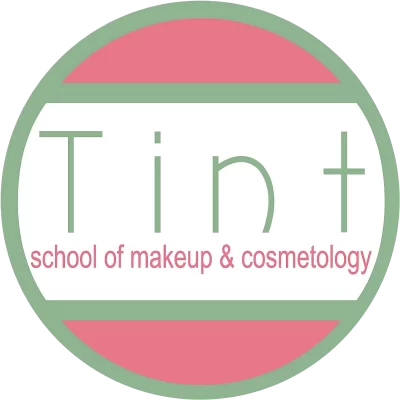June 7, 2023
The Dark Side of the Beauty Industry

The beauty industry is worth billions and touches nearly everyone’s lives—from the makeup we wear to the skincare we use. But behind the pretty packaging and promises of perfection, there’s a darker side that isn’t talked about enough. Some companies still put profits over people, animals, and the planet. In this blog, we’ll take a closer look at some of the industry’s unethical practices—and how we can all make more conscious choices.
Animal Testing: The Cost of Beauty on Innocent Lives
Animal testing is one of the most heartbreaking parts of the beauty world. Despite the rise of cruelty-free options, some brands still test their products on animals, especially when selling in countries that require it. Rabbits, mice, and other animals are put through painful experiments just to test ingredients.
Thankfully, there are better alternatives—like lab-grown skin and computer modeling—that don’t harm animals.
What You Can Do:
- Look for cruelty-free labels like Leaping Bunny or PETA-approved.
- Support brands that don’t test on animals or sell in markets where it’s required.
- Share your voice—encourage more brands to go cruelty-free.
Harmful Ingredients: What’s Really in Your Products?
Have you ever looked at the ingredient list on a beauty product and thought, “What is that?” You’re not alone. Some ingredients found in cosmetics have been linked to serious health issues—from skin irritation to hormone disruption.
Some of the most concerning ingredients include:
- Parabens – linked to hormone disruption.
- Phthalates – often hidden in “fragrance” and tied to reproductive issues.
- Formaldehyde-releasing preservatives – potential cancer risk.
- SLS and SLES – common foaming agents that can irritate your skin.
Consumers often assume that regulatory agencies strictly monitor cosmetic ingredients, but many potentially harmful chemicals are still legally permitted in products. Lack of transparency in labeling can make it difficult for consumers to identify dangerous substances.
What You Can Do:
- Choose clean beauty brands that are upfront about their ingredients.
- Use tools like the EWG Skin Deep Database to check product safety.
- Read labels and avoid products with red-flag ingredients.
False Advertising and Unrealistic Beauty Standards
We’ve all seen the ads with flawless skin, perfect hair, and magical results. But the truth? A lot of that is Photoshop. Many beauty campaigns promote unrealistic standards that can hurt our self-esteem.
And it’s not just the images. Claims like “anti-aging miracle” or “clinically proven” often come without much proof. These tactics make people feel like they’re not enough—and that they need a product to fix it.
What You Can Do:
- Follow brands and influencers who celebrate real, unedited beauty.
- Support companies that showcase diversity and inclusivity.
- Be critical of over-the-top claims—and read reviews from real users.
Worker Exploitation: Who Makes Your Makeup?
A lot of work goes into creating your favorite beauty products—and not all of it is ethical. In many cases, ingredients like mica (used for shimmer) are mined by children in unsafe conditions. Factory workers in other parts of the world may be underpaid or exposed to dangerous chemicals.
What You Can Do:
- Buy from brands that are transparent about their supply chains.
- Look for fair trade certifications.
- Research how your favorite products are made.
Environmental Damage: The Ugly Side of Beauty
Beauty shouldn’t cost the Earth—but sometimes it does. Single-use plastic, non-recyclable packaging, and harmful ingredients like microplastics contribute to serious environmental damage. Some products even use ingredients sourced in ways that destroy forests and wildlife habitats.
What You Can Do:
- Choose products with eco-friendly or refillable packaging.
- Support sustainable brands that minimize their environmental impact.
- Use fewer, multi-use products to cut down on waste.
How Tint School is Helping Create a Better Beauty Industry
At Tint School of Makeup & Cosmetology, we believe real beauty is about more than just technique—it’s about integrity, education, and doing the right thing. That’s why we prepare our students to understand the big picture: the impact the beauty industry has on people, animals, and the planet.
Here’s how we’re helping students become ethical beauty professionals:
- Ethical Product Education: We teach students how to identify cruelty-free, clean beauty, and vegan-friendly products—and understand why it matters.
- Ingredient Awareness: Our curriculum dives into what’s in products, how ingredients affect the skin, and which ones to avoid.
- Body Positivity and Inclusivity: We promote diverse representations of beauty and encourage students to uplift clients of all backgrounds and identities.
- Sustainable Practices: From minimizing waste to choosing earth-friendly brands, we guide students on how to build greener habits.
- Industry Accountability: Our graduates leave with the confidence to ask tough questions, make informed choices, and lead change in their salons, freelance work, or makeup careers.
Whether you want to work behind the scenes on photo shoots or run your own business, Tint helps you build your career with heart and purpose.
The Future of Beauty Starts With You
The beauty industry is powerful—but so are you. As a consumer, you can push for change by supporting ethical brands, reading labels, and speaking up against harmful practices. And if you’re thinking about a career in beauty, you can be part of the movement to make the industry more honest, inclusive, and sustainable.
At Tint School of Makeup & Cosmetology, we’re proud to help lead that change. We’re not just teaching beauty—we’re shaping the future of it. Let’s build a better, kinder, and more responsible industry—together.
